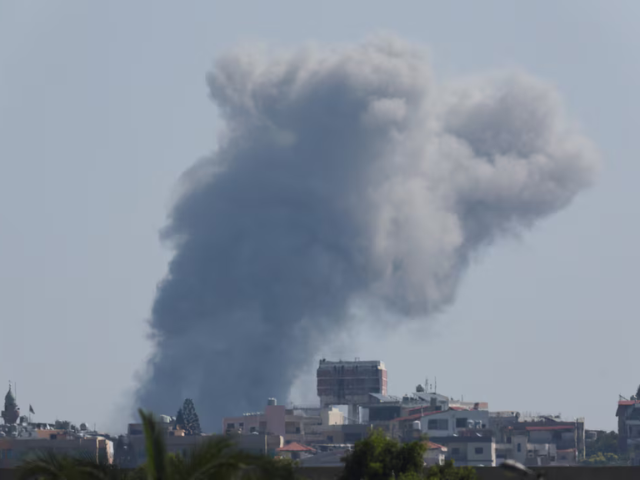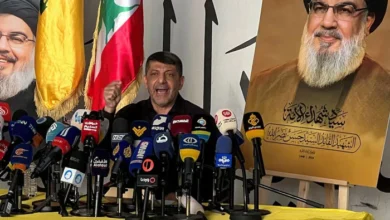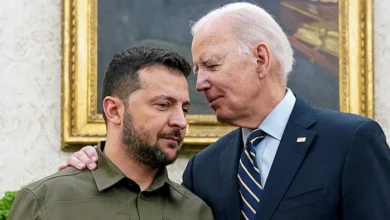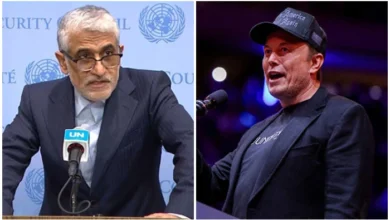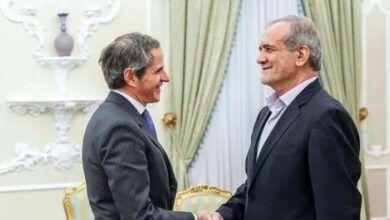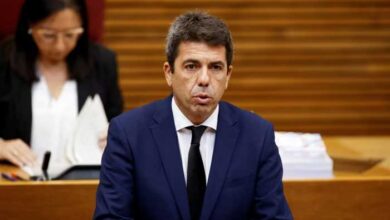Israel and Hezbollah traded deadly fire on Friday after efforts by the United States and its allies to broker a ceasefire failed.
Israeli military action has left more than 700 people dead in Lebanon this week, according to the Lebanese health ministry.
Hezbollah has launched rockets into northern Israel, including the city of Tiberias, in retaliation for Israeli airstrikes that have intensified since Monday, targeting Hezbollah positions across Lebanon.
One of the Israeli strikes reportedly killed a family of nine in southern Lebanon, as confirmed by the National News Agency.
Despite the growing toll, Israeli Foreign Minister Israel Katz rejected a 21-day truce proposal put forward by the US and France.
Katz vowed that Israel would continue its military operations against Hezbollah “until victory.” Prime Minister Benjamin Netanyahu, set to address the UN General Assembly, has not responded to the proposal, with his office stating that the military has been ordered to “continue fighting with full force.”
Lebanon has seen over 1,500 deaths since the conflict began, surpassing the toll of the 2006 war between Israel and Hezbollah. The latest surge in violence follows a year of hostilities sparked by Hamas’s attack on Israel in October 2023.
Israel discusses US ceasefire plan amid ongoing strikes on Lebanon
Israel will continue to discuss ceasefire proposals for Lebanon in the days ahead, Prime Minister Benjamin Netanyahu said on Friday, as Washington warned that further escalation would only make it harder for civilians on both sides to return home.
Israel’s foreign minister on Thursday rejected global calls for a ceasefire with the Iran-backed Hezbollah group and pressed ahead with airstrikes that have killed hundreds in Lebanon and heightened fears of a regional war.
An Israeli strike on Friday killed nine members of a family, including four children, in the Lebanese border town of Shebaa, mayor Mohammad Saab told Reuters.
Israeli attacks have killed more than 600 people in Lebanon since Monday, the health ministry says.
Hezbollah said it had fired rockets into Israel on Friday at Kiryat Ata near the city of Haifa some 30 km (20 miles) from the border, and the city of Tiberias, declaring the attacks a response to Israel strikes on villages, cities and civilians.
Though Israeli air defences have shot down many of Hezbollah’s rockets, limiting the damage they’ve done, the group’s attacks have shut down normal life across much of northern Israel as more areas fall into its crosshairs.
The Israeli military said it had intercepted four unmanned aircraft that crossed from Lebanese territory into the maritime space off the coast of Rosh Hanikra at the Lebanese border.
The conflict between Israel and the heavily armed Hezbollah is their worst in more than 18 years and part of the spillover that has swept through the Middle East as a result of the Gaza war.
Syrian state media reported that an Israeli airstrike on Friday killed five soldiers in Syria, where Israel has intensified a years-long campaign aimed at rolling back the influence of Iran and Hezbollah.
The United States and France proposed on Wednesday an immediate 21-day truce across the Lebanese-Israeli border, and said negotiations continued, including on the sidelines of a United Nations meeting in New York.
Netanyahu said on Friday that Israeli teams had meetings to discuss the US ceasefire proposals on Thursday and would continue discussions in the days ahead, adding that he appreciated the US efforts.
“Our teams met (Sept. 26) to discuss the US initiative and how we can advance the shared goal of returning people safely to their homes. We will continue those discussions in the coming days,” he said in a statement.
On Thursday, after Netanyahu left for New York where he is attending the United Nations General Assembly, his office issued a statement saying the prime minister had ordered Israeli troops to continue fighting with full force in Lebanon.
His statement made no reference to the comments of Foreign Minister Israel Katz, who on Thursday rejected ceasefire proposals, or other Israeli politicians who have echoed that position, saying only that there had been “a lot of misreporting around the U.S.-led ceasefire initiative”.
Blinken stresses importance of ceasefire
Israel says its campaign aims to secure the return home of tens of thousands of Israelis who have been forced to evacuate areas near the Lebanese border over the last year of hostilities.
In Lebanon, more than 90,000 people have been reported as newly displaced this week, according to the UN International Organisation for Migration (IOM), adding to more than 111,000 already uprooted by the conflict.
The UN refugee agency UNHCR said 30,000 people had crossed from Lebanon into Syria in the last few days, 80% of them Syrians.
Well over a million Syrians fled to Lebanon during the Syrian civil war that erupted in 2011.
US Secretary of State Antony Blinken told Israel further escalation would only make it harder for civilians to return home on both sides of the border, the State Department said.
“The Secretary discussed the importance of reaching an agreement on the 21 day ceasefire across the Israel-Lebanon border,” the State Department said in a statement on Thursday, referring to talks between Blinken and Israeli Minister for Strategic Affairs Ron Dermer.
“He underscored that further escalation of the conflict will only make that objective (of civilian return) more difficult.”
The State Department added that Blinken also discussed efforts to reach a ceasefire in Gaza and steps that Israel needs to take to improve delivery of humanitarian assistance in the enclave where nearly the entire 2.3 million population is displaced and faces a hunger crisis.

